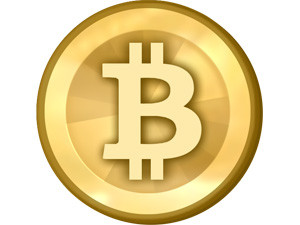
Local online marketplace bidorbuy.co.za started accepting Bitcoin as payment for goods online in March 2016. Since then, it has seen a steady increase both in the number and value of transactions paid with the crypto-currency.
Bidorbuy is one of the only major online retailers to accept Bitcoin, other than rival takealot.com and smaller bespoke e-commerce Web sites. A full list can be found here.
The company, which does not carry its own stock but instead acts as a platform for sellers to reach buyers or put their wares on auction, says it was motivated to accept Bitcoin because it wanted to offer users more payment options.
"As with any innovation, it takes time for people to get used to it," says bidorbuy CEO Jaco Jonker. "But these days, about a year-and-a-half since we added Bitcoin, it is apparent this virtual currency has garnered a following on the site."
Although there has been an increase in usage of the crypto-currency on the site, it did see a noticeable decline at the end of July and beginning of August 2017, which bidorbuy attributes to the upheaval in the Bitcoin community.
However, by September 2017, the number of Bitcoin payments on bidorbuy increased threefold in comparison with September 2016.
The company says in the same period, the value of goods purchased with Bitcoin increased almost 6.5 times. In September 2016, the average value per basket of goods paid with Bitcoin was R650, compared to R1 300 in September 2017.
"Bitcoin transactions still represent only a tiny percentage of the total number of sales on the site. Still, the adoption rate of this new and not very well understood method of payment is promising and we expect to see steady growth in future."
The most commonly purchased goods with Bitcoin on bidorbuy are computer-related products and electronics, but everything from plant seeds to jewellery has been bought.
Due to its set-up, bidorbuy sellers have the option to choose which payment methods they accept. Jonker says the majority of regular bidorbuy sellers accept Bitcoin, and of the 3.2 million items currently listed on the site, more than 2.3 million can be purchased with Bitcoin.
Bidorbuy partnered with Luno (then called BitX) to introduce the virtual currency as a payment method.
During checkout, buyers on bidorbuy can select the Bitcoin payment method. Luno then provides the buyer with a unique Bitcoin wallet address and the real-time exchange rate, which is guaranteed for 10 minutes.
The buyer and seller both get immediate notification of a successful payment and the funds instantly get converted from Bitcoin to rand, which the seller then receives in their bidorbuy account.
In September, large grocery retailer Pick n Pay piloted accepting Bitcoin as a tender in one of its Cape Town stores. Customers used a QR code connected to a Bitcoin wallet at checkout. The pilot was limited to the canteen store in Pick n Pay's head office for a specific period of time and is no longer active.
"We don't expect that in the near-term, accepting Bitcoin will unlock any significant new business and we are unlikely to roll-out the solution until the payments industry and regulatory authorities have established a framework for managing the risks associated with crypto-currencies. We have proved to ourselves, though, that it is technically possible to roll-out a solution very quickly," Richard van Rensburg, deputy CEO of Pick n Pay, said at the time.
In a recent interview with ITWeb, Bitcoin expert Vinny Lingham said it was a good thing South African retailers were experimenting with and accepting the crypto-currency.
"I think South Africans are very interested in hedging against rand inflation. Bitcoins have a much lower inflation than the rand, and there are some gains involved. But I think companies that accept Bitcoins in SA are able to accept it through a third-party processor so they don't actually get exposed to the currency or the risk, they just get cash through an exchange."
Share